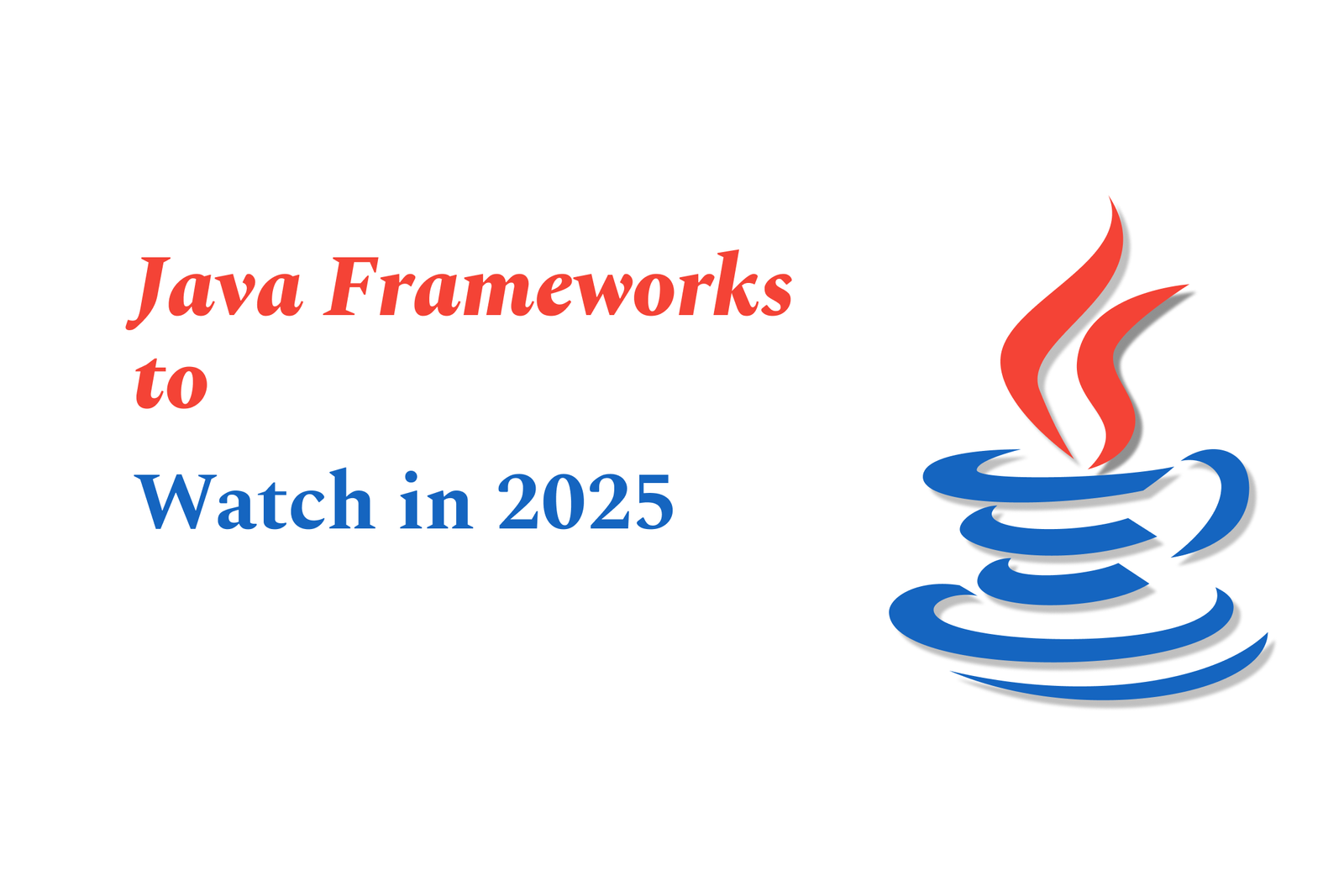Java frameworks to watch in 2025
Java frameworks in 2025 focus on enhancing desktop and enterprise apps with improved performance, native look on macOS, and easy packaging. Key players include JavaFX for rich GUIs and Jetpack Compose for Desktop, blending modern design with cross-platform support.
Java Frameworks to Watch in 2025
1 ) Introduction to Java Frameworks in 2025
Java remains a dominant language for software development, especially for enterprise and desktop applications. As we approach 2025, various frameworks continue to evolve, catering to modern development needs including performance, native look & feel, and seamless packaging.
2 ) Desktop GUI Frameworks for Java
Swing: A long standing Java GUI framework, known for stability and wide usage but facing challenges in modern design adaptation.
JavaFX: A more modern Java GUI toolkit that supports rich user interfaces and multimedia. It offers better support for macOS native features compared to Swing.
Jetpack Compose for Desktop: Though originally for Kotlin, this cross platform UI toolkit is gaining attention for desktop applications, including macOS, but experts question its optimization specifically for macOS.
3 ) Focus on Native macOS Application Development with Java/Kotlin
Developers seek frameworks that provide a native look and feel on macOS, ideally with integration to SwiftUI or native macOS design principles.
Performance is critical; frameworks should avoid bulkiness akin to Electron apps.
Packaging and distribution ease for the Mac App Store or direct downloads is a major requirement.
4 ) Most Recommended Frameworks for 2025 Desktop Applications
JavaFX is frequently highlighted as a strong candidate for Java desktop applications with native macOS adaptations.
Jetpack Compose for Desktop, while promising as a Kotlin based UI framework, still requires confirmation on its macOS optimization capabilities.
Swing is considered somewhat dated compared to newer toolkits.
5 ) Conclusion
For developers targeting Java or Kotlin frameworks in 2025, emphasis will be on frameworks that balance native experience, performance, and ease of packaging. JavaFX stands out currently, with Jetpack Compose for Desktop emerging as a potential strong contender. Developers should monitor ongoing updates and community support to choose the best framework aligned with their project needs.
https://justacademy.in/news-detail/android-device-manufacturer-announcements
https://justacademy.in/news-detail/how-swiftdata-changes-persistent-storage-in-ios-apps
https://justacademy.in/news-detail/react-native?s-new-code-splitting-techniques
https://justacademy.in/news-detail/react-native-expo-sdk-updates-announced
https://justacademy.in/news-detail/how-to-get-hired-as-flutter-dev-in-2025
Related Posts
Java supports GDPR and data privacy by enabling secure data handling through encryption, controlled access, and precise data management. It allows developers to minimize PII exposure, ensure data confidentiality, and design workflows that comply with data protection regulations effectively.
Java code quality tools have evolved to include advanced static analysis, integrated security checks, and AI-powered code reviews. These updates help developers detect bugs, enforce coding standards, and enhance security, streamlining the development process and improving overall code reliability.
Java remains a cornerstone in big tech companies, evolving with modern features like records, pattern matching, and virtual threads. Its robust ecosystem, enhanced performance, and growing AI integrations keep it vital for both legacy systems and innovative new projects.
Java and CI/CD pipeline optimizations streamline Java application development by automating builds, tests, and deployments. They improve efficiency through parallelization, caching, and secure secrets management, enabling faster feedback loops and more reliable, scalable software delivery.
Java supports modern cryptography standards through its flexible Java Cryptography Architecture (JCA), enabling integration of advanced algorithms like AES, EdDSA, and post-quantum tools. Libraries like Bouncy Castle offer FIPS-certified, hardware-accelerated implementations for secure development.
Java 23 enhances record patterns by enabling concise, direct destructuring of record components within pattern matching, simplifying type checks and data extraction. This improvement boosts code readability and expressiveness by reducing boilerplate in handling immutable data classes.
Java remains a top choice for mobile app backends, powering scalable, secure, and high-performance server-side solutions. Latest trends include cloud-native microservices, reactive programming, and enhanced JVM optimizations, enabling efficient, flexible, and robust mobile backend development.
Java SE 24 and LTS Java SE 21 offer enhanced features and performance, while Apache Spark 4.0.0 introduces Scala 2.13 support and advanced ML and SQL capabilities. Together, they empower developers to build scalable, high-performance data applications with modern tools.
JUnit 5 modernizes Java testing with a modular architecture, improved assertions, and seamless Java 8+ support. Beyond JUnit, tools like Mockito and AssertJ enhance mocking and assertions, creating a powerful, flexible ecosystem for writing clean, efficient Java unit tests.
Java plays a pivotal role in cloud automation tools by providing a robust, platform-independent language used to build scalable automation frameworks like Jenkins and Selenium, enabling efficient CI/CD pipelines, testing, and orchestration across diverse cloud environments.










